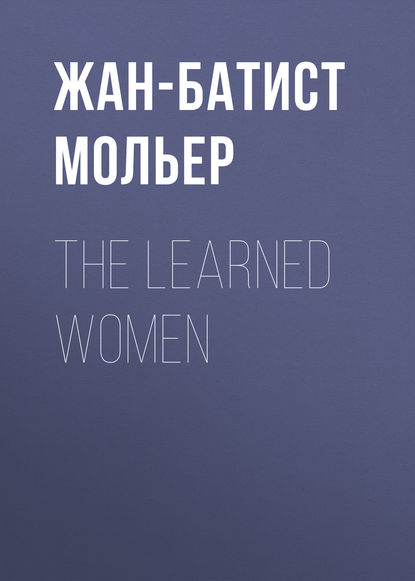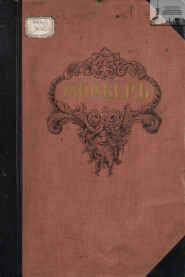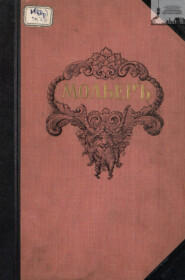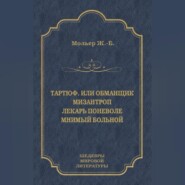По всем вопросам обращайтесь на: info@litportal.ru
(©) 2003-2025.
✖
The Learned Women
Год написания книги
2017
Настройки чтения
Размер шрифта
Высота строк
Поля
PHI. But the greatest project of our assembly – a noble enterprise which transports me with joy, a glorious design which will be approved by all the lofty geniuses of posterity – is the cutting out of all those filthy syllables which, in the finest words, are a source of scandal: those eternal jests of the fools of all times; those nauseous commonplaces of wretched buffoons; those sources of infamous ambiguity, with which the purity of women is insulted.
TRI. These are indeed admirable projects.
BEL. You shall see our regulations when they are quite ready.
TRI. They cannot fail to be wise and beautiful.
ARM. We shall by our laws be the judges of all works; by our laws, prose and verse will both alike be submitted to us. No one will have wit except us or our friends. We shall try to find fault with everything, and esteem no one capable of writing but ourselves.
SCENE III – PHILAMINTE, BÉLISE, ARMANDE, HENRIETTE, TRISSOTIN, LÉPINE
LEP. (to TRISSOTIN). Sir, there is a gentleman who wants to speak to you; he is dressed all in black, and speaks in a soft tone. (They all rise.)
TRI. It is that learned friend who entreated me so much to procure him the honour of your acquaintance.
PHI. You have our full leave to present him to us. (TRISSOTIN goes out to meet VADIUS.)
SCENE IV. – PHILAMINTE, BÉLISE, ARMANDE, HENRIETTE
PHI. (to ARMANDE and BÉLISE). At least, let us do him all the honours of our knowledge. (To HENRIETTE, who is going) Stop! I told you very plainly that I wanted to speak to you.
HEN. But what about?
PHI. You will soon be enlightened on the subject.
SCENE V. – TRISSOTIN, VADIUS, PHILAMINTE, BÉLISE, ARMANDE, HENRIETTE
TRI. (introducing VADIUS). [Footnote: It is probably Ménage who is here laughed at.] Here is the gentleman who is dying to see you. In presenting him I am not afraid, Madam, of being accused of introducing a profane person to you; he can hold his place among the wits.
PHI. The hand which introduces him sufficiently proves his value.
TRI. He has a perfect knowledge of the ancient authors, and knows
Greek, Madam, as well as any man in France.
PHI. (to BÉLISE). Greek! O heaven! Greek! He understands Greek, sister!
BEL. (to ARMANDE). Ah, niece! Greek!
ARM. Greek! ah! how delightful!
PHI. What, Sir, you understand Greek? Allow me, I beg, for the love of
Greek, to embrace you. (VADIUS embraces also BÉLISE and
ARMANDE.)
HEN. (to VADIUS, who comes forward to embrace her)
Excuse me, Sir, I do not understand Greek. (They sit down.)
PHI. I have a wonderful respect for Greek books.
VAD. I fear that the anxiety which calls me to render my homage to you to-day, Madam, may render me importunate. I may have disturbed some learned discourse.
PHI. Sir, with Greek in possession, you can spoil nothing.
TRI. Moreover, he does wonders in prose as well as in verse, and he could, if he chose, show you something.
VAD. The fault of authors is to burden conversation with their productions; to be at the Palais, in the walks, in the drawing-rooms, or at table, the indefatigable readers of their tedious verses. As for me, I think nothing more ridiculous than an author who goes about begging for praise, who, preying on the ears of the first comers, often makes them the martyrs of his night watches. I have never been guilty of such foolish conceit, and I am in that respect of the opinion of a Greek, who by an express law forbade all his wise men any unbecoming anxiety to read their works. – Here are some little verses for young lovers upon which I should like to have your opinion.
TRI. Your verses have beauties unequalled by any others.
VAD. Venus and the Graces reign in all yours.
TRI. You have an easy style, and a fine choice of words.
VAD. In all your writings one finds ithos and pathos.
TRI. We have seen some eclogues of your composition which surpass in sweetness those of Theocritus and Virgil.
VAD. Your odes have a noble, gallant, and tender manner, which leaves
Horace far behind.
TRI. Is there anything more lovely than your canzonets?
VAD. Is there anything equal to the sonnets you write?
TRI. Is there anything more charming than your little rondeaus?
VAD. Anything so full of wit as your madrigals?
TRI. You are particularly admirable in the ballad.
VAD. And in bouts-rimés I think you adorable.
TRI. If France could appreciate your value —
VAD. If the age could render justice to a lofty genius —
TRI. You would ride in the streets in a gilt coach.
VAD. We should see the public erect statues to you. Hem…(to
TRISSOTIN). It is a ballad; and I wish you frankly to…
TRI. (to VADIUS). Have you heard a certain little sonnet upon the Princess Urania's fever?

















